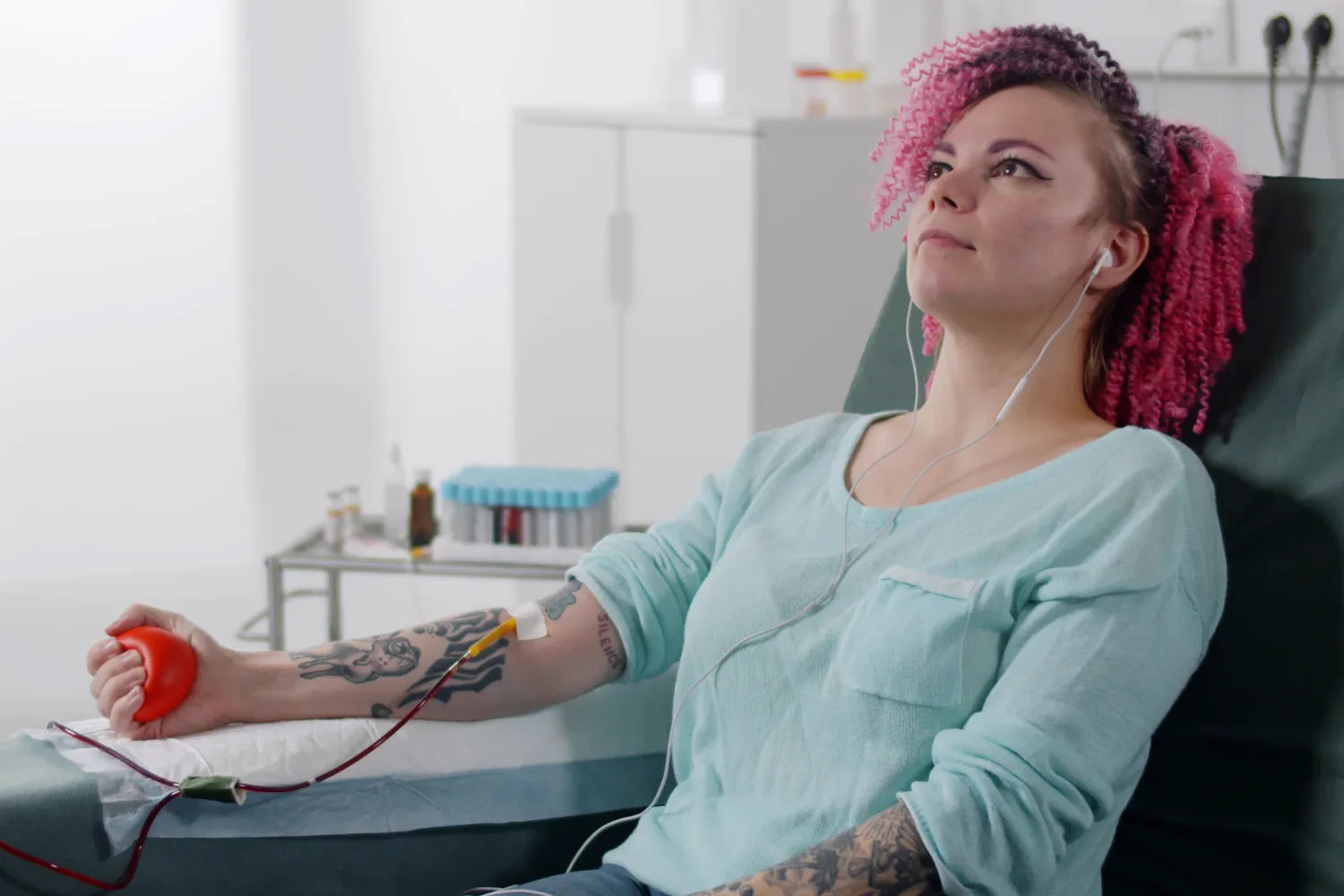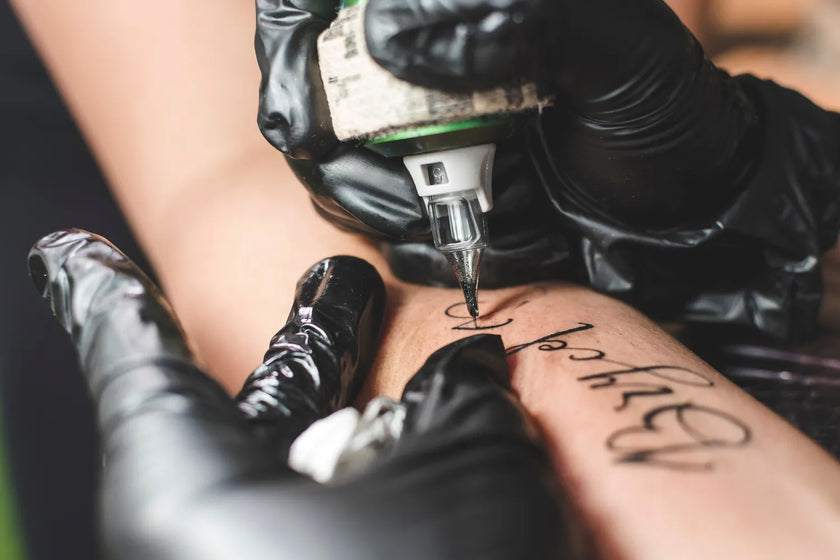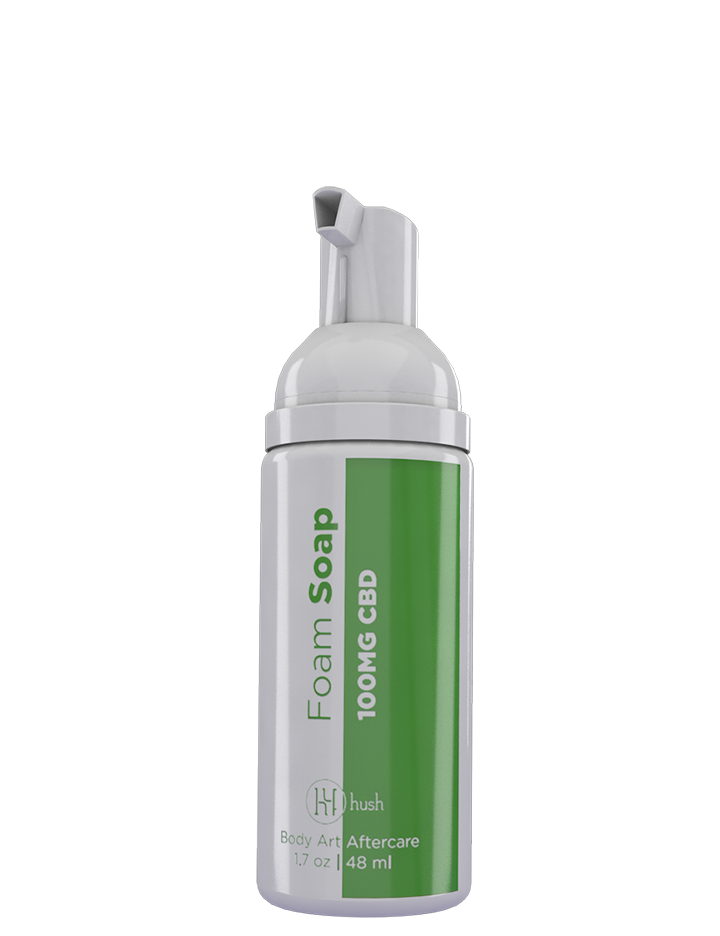
$14.99
There’s no greater gift than saving someone’s life, and donating blood allows you to save many lives with very minimal effort. If you can be a superhero from the comfort of a lounge chair, why not give it a shot?
There are some major misconceptions about blood donation and tattoos. These misconceptions may prevent people who want to be heroes from signing up to do the deed. If you have tattoos and you’re interested in saving lives, here’s what you need to know.
The Importance of Donating Blood
There aren’t a lot of things the average person can do to save multiple lives—especially not without significant risk. If you’re not ready to dawn your cape and become a vigilante crusader for justice, how about sitting down in a comfortable chair and donating some blood?
Every two seconds, someone in the United States needs a blood transfusion. Just one donation can save as many as three people. Donating blood is a low-effort way to save lives. Donating just twice a year can help half a dozen people escape a preventable death and go on to live and thrive.
If you’re interested in being a sit-down superhero, you can use the Red Cross guide for first-time blood donors to help you plan your donation. The United States is currently facing the lowest blood donation rates in the past 20 years, and it’s more important now than ever to help save lives.
Most healthy adults are eligible to donate blood; the process only takes about 10 minutes. The process is relatively painless, and you can donate blood approximately once every two months.
Can You Donate Blood With Tattoos?

YES! You can absolutely donate blood with tattoos, piercings, and even certain medical conditions that aren’t transmissible through blood.
In short, if your doctor would have given you clearance to give blood if you didn’t have a tattoo, the same clearance applies if you do have a tattoo. If you got your tattoo at a state-regulated facility by a professional tattoo artist, your risk factor for picking up a bloodborne pathogen is extremely low.
You should only be getting tattoos in regulated facilities from professionals. It’s absolutely never a good idea to get an amateur tattoo in an unsanitary environment, regardless of whether or not you intend to give blood in the future.
When You Get a Tattoo in an Unregulated State
Several states don’t regulate tattoo businesses to the same standard as the rest of the country. If you get a tattoo in one of the following states, you’re required to wait three months before giving blood.
If you want to donate blood, plan to donate blood before your tattoo or hold off until the waiting period is over.
- New Hampshire
- New York
- Washington D.C.
- Georgia
- Maryland
- Idaho
- Massachusetts
- Utah
- Wyoming
- Pennsylvania
Blood banks fear that tattoos in states that lack strict regulations may expose tattoo patrons to bloodborne illnesses like hepatitis B and hepatitis C. By the end of the three-month waiting period, it should be apparent if someone were infected with a bloodborne pathogen. The presence of a communicable pathogen would be strong enough to show up on a blood test.
Blood Is Always Tested
Blood donors are required to complete a questionnaire about their health and habits and submit to a smaller version of a physical exam. You may be asked about your tattoos, but having tattoos will never disqualify you from giving blood. In the worst-case scenario, you’ll need to allow a waiting period to pass.
Anyone with a bloodborne condition or a condition that makes it dangerous for them to give blood (like anemia or a clotting disorder) will be excluded for their own safety and the safety of others. People with few risk factors who are in generally reasonable health will be allowed to give blood.
Tests are performed on collected blood samples to ensure the blood is safe to give to someone else during a transfusion. If the tests turn up anything that may be cause for concern, the technicians will let you know, and you may not be able to donate blood in the future.
Think Before You Ink and Save Some Lives
If you plan to donate blood, give yourself a few months after getting a tattoo or wait to get your tattoo until after you’ve recuperated from your donation. It’s safe to give blood if you have a tattoo as long as it would be safe for you to give blood without one.
It’s also extremely important to absolutely never get a tattoo in an unsanitary environment from someone who isn’t a professional tattoo artist. You can wind up with a lot more than you bargained for, including incurable pathogens that will endanger your life and make you ineligible to donate blood.

When You’re Ready To Get Your Tattoo, We’re Here for You
Giving blood for the first time might make you a little nervous, but it’s for a good cause. A little bit of nerves in the moment can provide life-saving relief to someone else.
If you’re a little nervous about getting a tattoo for the first time, you don’t have to be. We have the perfect workaround. Our tattoo numbing cream is designed to take the “ouch” factor out of getting tattooed.
Slather it on about 45 minutes before your appointment and wrap it with plastic wrap to keep it working. Remove the wrap, wipe it down, and let your tattoo artist get to work. It’s barely more than a poke! Reward yourself for donating blood with a painless tattoo.
Sources:
Donate Blood. Save Lives. | National Heart, Lung, and Blood Institute
First Time Blood Donors Guide | Red Cross
Donor Safety, Screening and Testing | Association for the Advancement of Blood and Biotherapies





